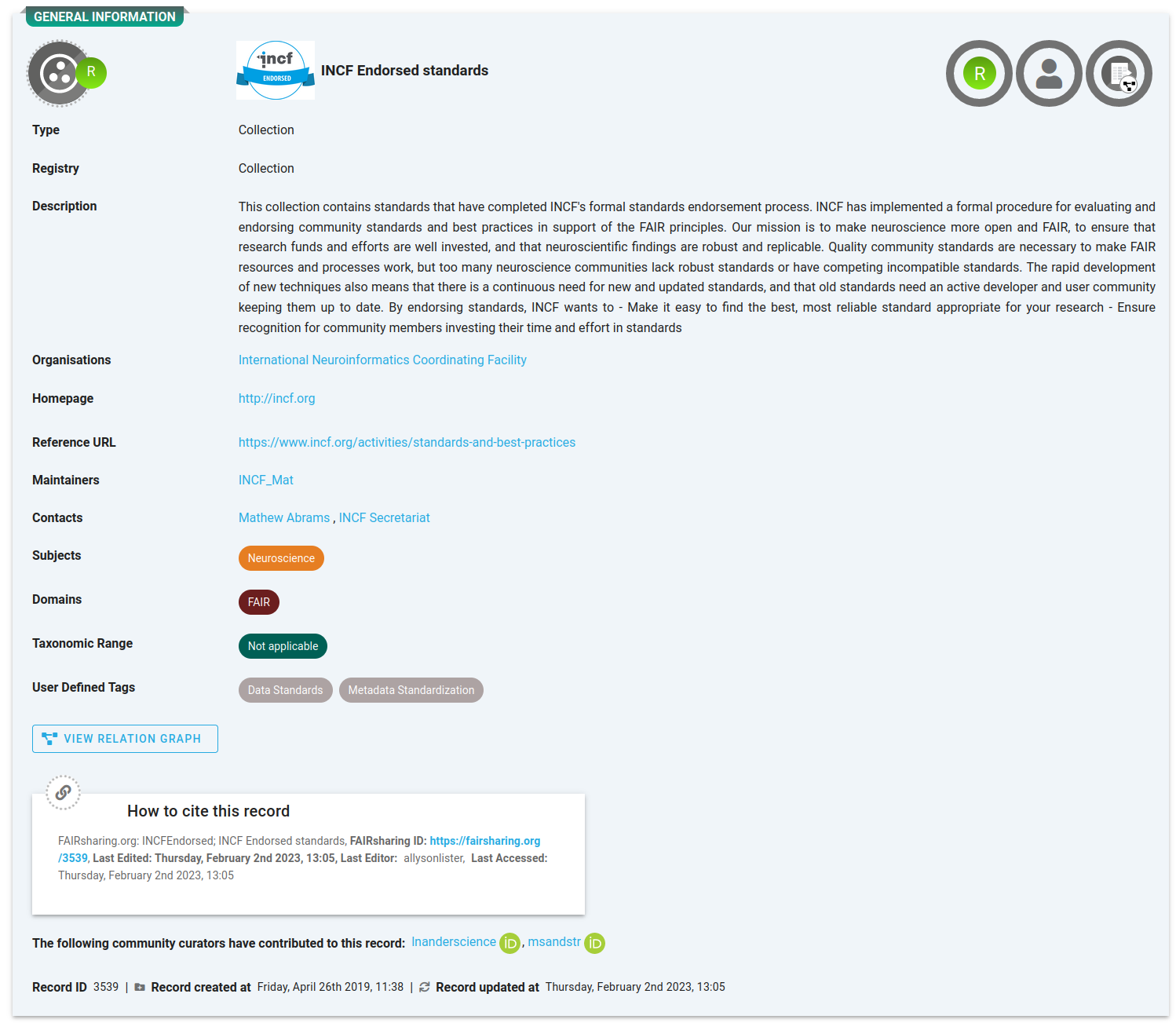Mathew Abrams is the Director of Science and Training at the International Neuroinformatics Coordinating Facility (INCF), which serves as a forum to collaboratively coordinate global neuroinformatics activities that guide and oversee the development of standards, best practices, ontologies, and other unifying activities that fulfil its mission. In this guest blog post, Mathew describes how the INCF makes use of FAIRsharing as part of the formal procedure it has in place for the evaluation and endorsement of community standards. The INCF has also participated in the FAIRsharing Community Champions Programme.

The International Neuroinformatics Coordinating Facility (INCF) is an international organization dedicated to the development, evaluation, and endorsement of standards and best practices that embrace the principles of open, FAIR, and citable neuroscience. In recognition of the need to make it easier for the neuroscience community to find the best, most reliable standards and best practices appropriate for their research and ensure recognition for community members investing their time and effort in developing standards, INCF established a formal procedure for evaluating and endorsing community standards and best practices that support the FAIR principles that includes expert and community reviews.

FAIRsharing has served as an invaluable resource for identifying prospective standards for the INCF community which are then evaluated against INCF’s established set of criteria for standards and best practices. INCF endorsed standards are made available to the community through the INCF standards and best practices portfolio and through a dedicated FAIRsharing collection of INCF-endorsed standards.

To further complement the descriptions of standards found on FAIRsharing and to make it easier for the neuroscience community to find the appropriate standard for their use case, the INCF portfolio provides users with information about appropriate use cases and complementary standards, as well as provides links to tools and resources that have implemented the standards, implementation tutorials, and question and answer forums associated with the standards. We hope that our experience with leveraging the work of FAIRsharing inspires other communities to provide a similar value add to FAIRsharing, as well as serve as evidence that it is possible for organizations with similar missions to work together and build on each other’s efforts.